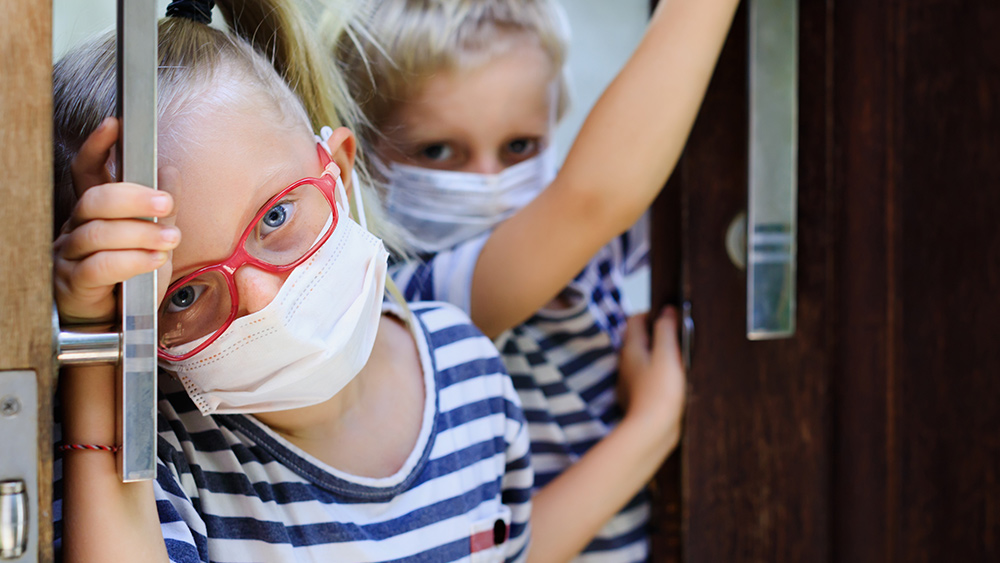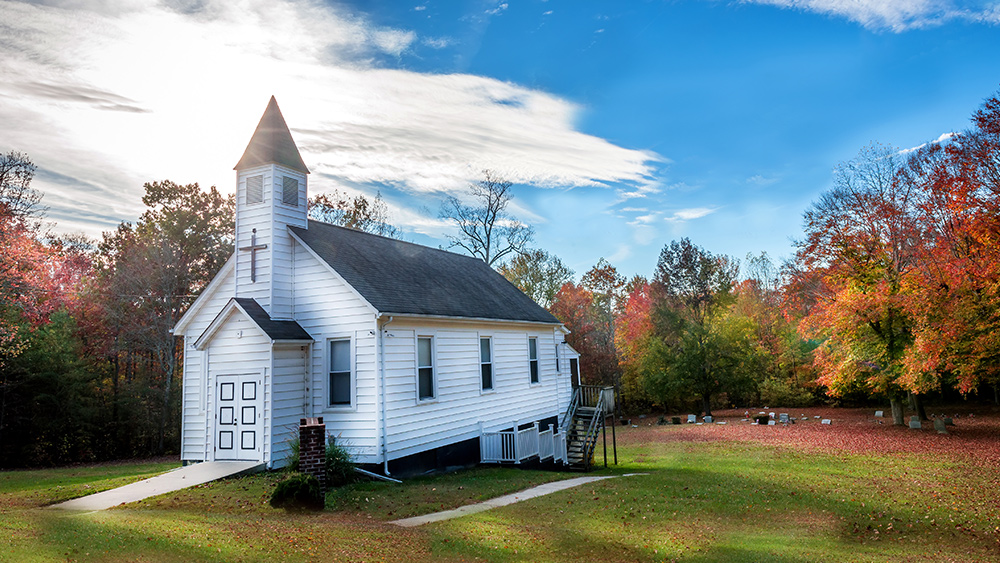 Parler
Parler Gab
Gab
Lockdowns do more harm than good
Bhattacharya called the harms caused by lockdowns "extremely multi-dimensional" and traumatic, especially to the poor, children and those on the margins of society. "It's not possible to reduce to a single number," he said. "For a child who skips a year of school, the consequences will last a lifetime." According to Bhattacharya, lockdowns led to dramatic increases in poverty, food insecurity, outright starvation, depression, anxiety, suicide and death. (Related: Data audit shows devastating effects of UK lockdown.) Last year's data supported his claims. Most of the excess deaths in the U.S. were not attributed to COVID-19. Excess mortality is the best gauge of the pandemic's impact. It compares the overall number of deaths with the total in previous years. While some of those deaths could be undetected COVID-19 cases, and some could be unrelated to the pandemic or the lockdowns, preliminary reports point to some obvious lockdown-related factors. There was a sharp decline in visits to emergency rooms and an increase in fatal heart attacks due to failure to receive prompt treatment. A lot fewer people were screened for cancer, and social isolation contributed to excess deaths from dementia and Alzheimer's. As unemployment surged and mental-health and substance-abuse treatment programs were interrupted, the reported levels of anxiety, depression and suicidal thoughts increased dramatically, as did alcohol sales and fatal drug overdoses. The number of people killed last year in motor-vehicle accidents in the U.S. rose to the highest level in more than a decade, even though Americans did significantly less driving than in 2019. It was the steepest annual increase in the fatality rate per mile traveled in nearly a century, apparently due to more substance abuse and more high-speed driving on empty roads. There were roughly 56,000 excess deaths among Americans aged 15 to 54 – 22,000 involved COVID-19 and 34,000 from other causes.Experts now allowed to question lockdown narrative
The idea that there are alternatives to lockdowns has not been given minimal space for discussion in the public forum, particularly among the mainstream media, politicians and public health and medical professionals. To be against lockdown was considered "saying something dangerous," Bhattacharya said. He has found that out the hard way. In April 2020, Bhattacharya and some colleagues reported that the fatality rate among the infected was considerably lower than the assumptions used to justify lockdowns. By reporting data that didn't fit the official panic narrative, they became targets of unfair online attacks by other scientists and the mainstream media. Stanford University subjected them to a two-month fact-finding inquiry by an outside legal firm. The inquiry found no evidence of wrongdoing, but the smear campaign sent a clear message to scientists: Don't question the lockdown narrative. His colleagues also tried – and failed – to prevent lockdowns. Stefan Baral, an epidemiologist and an associate professor in the Department of Epidemiology at the Johns Hopkins Bloomberg School of Public Health with 350 publications to his name, submitted a critique of lockdowns to more than 10 journals and finally gave up. Martin Kulldorff, professor of medicine at Harvard Medical School, had a similar experience with his article early in the pandemic – arguing that resources should be focused on protecting the elderly. "Lockdowns have protected the laptop class of young low-risk journalists, scientists, teachers, politicians and lawyers, while throwing children, the working class and high-risk older people under the bus," Kulldorff said. Kulldorff eventually joined Bhattacharya in advocating for focused protection. They urged officials to divert more resources to shield the elderly while reopening business and schools for younger people.Lockdowns stunt immune system development
Lockdowns are stunting the training of our immune system. Our innate immune system protects us from a multitude of pathogens, thereby preventing these pathogens from causing disease. Suppression of innate immunity, especially in the younger age groups, can become very problematic. (Related: Report: States that imposed lockdown have more COVID-19 deaths per million compared to no-lockdown states.) As the innate immune system cannot remember the pathogens it encountered – innate immunity has no so-called immunological memory – we can only continue to rely on it provided we keep it trained well enough. It can only be achieved by regular exposure to a myriad of environmental agents, including pathogens. Bhattacharya, Kulldorff and numerous other medical professionals formally outlined the idea in the Great Barrington Declaration. Though tens of thousands of other scientists and doctors went on to sign the declaration, the mainstream media portrayed it as a deadly "let it rip" strategy and an "ethical nightmare." "We have come to think about lockdown as if it's the only possible thing to do," Bhattacharya said. "But that's not true. You have to make decisions based on the margins of what is alternatively possible. That requires imagination and requires care about thinking of different people in different parts of society, and the risks they face combined with the values they have and the scientific parameters about disease spread and all of these other things." Follow Pandemic.news for more news and information about lockdowns during the coronavirus pandemic. Sources include: LifeSiteNews.com City-Journal.org NYPost.comDeborah Birx hid covid info from Trump, altered CDC guidelines without approval
By Ethan Huff // Share
Germany’s birth rate improbably falls by 11% in the first quarter of 2022
By Lance D Johnson // Share
By Mary Villareal // Share
Common signs and symptoms of magnesium deficiency
By Olivia Cook // Share





